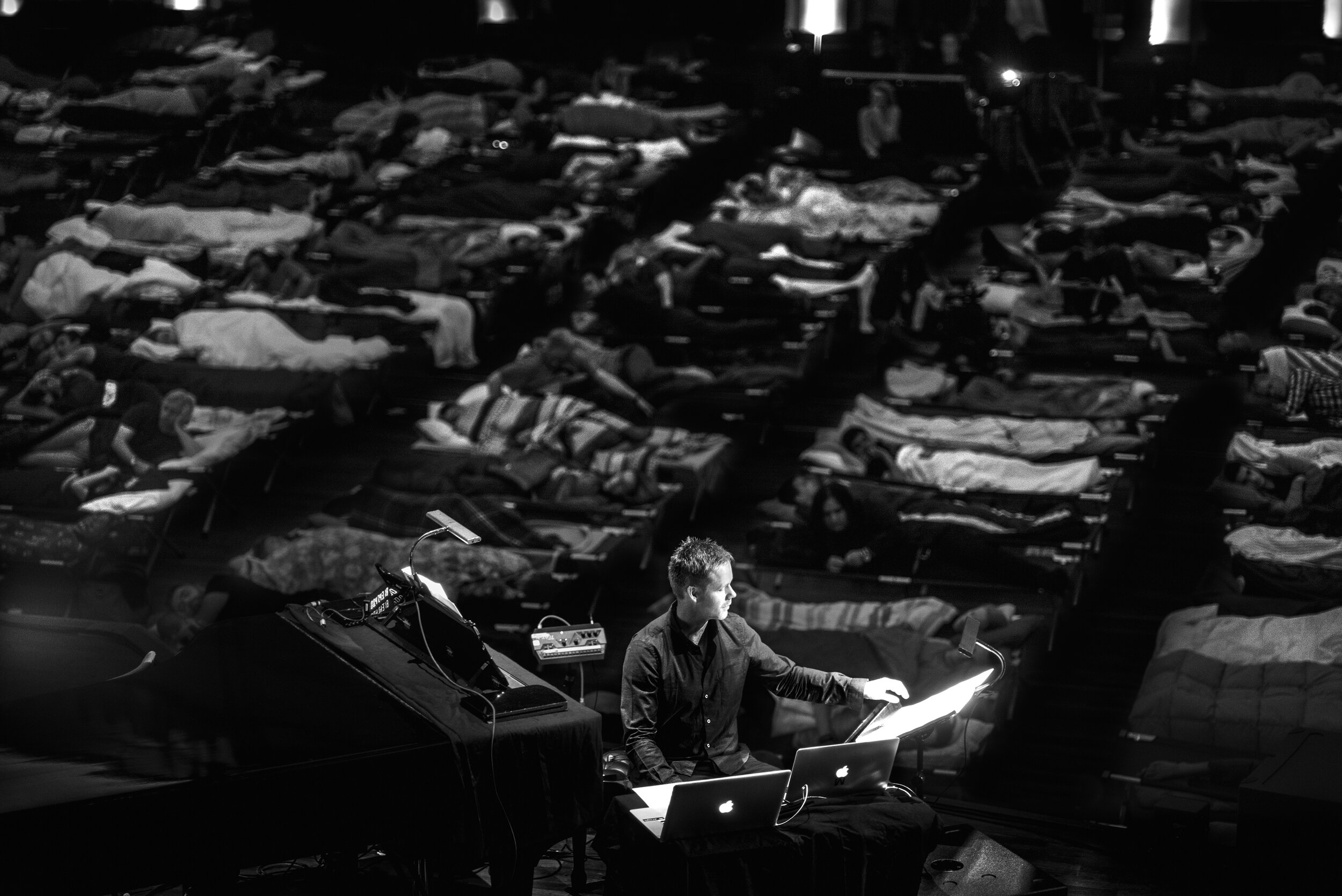Spike Lee documents the former Talking Heads frontman's brilliant, timely 2019 Broadway show, based on his recent album and tour of the same name.

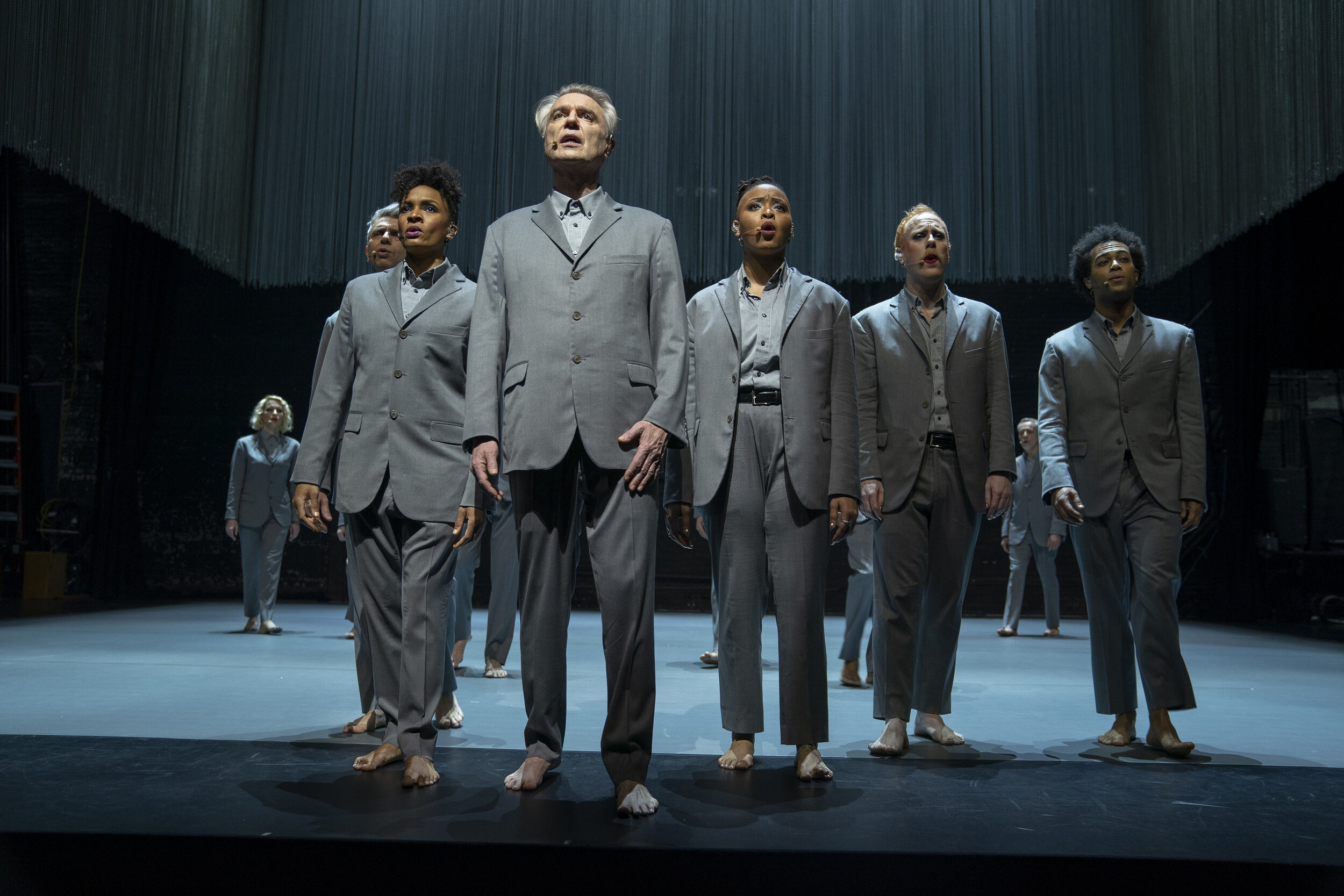
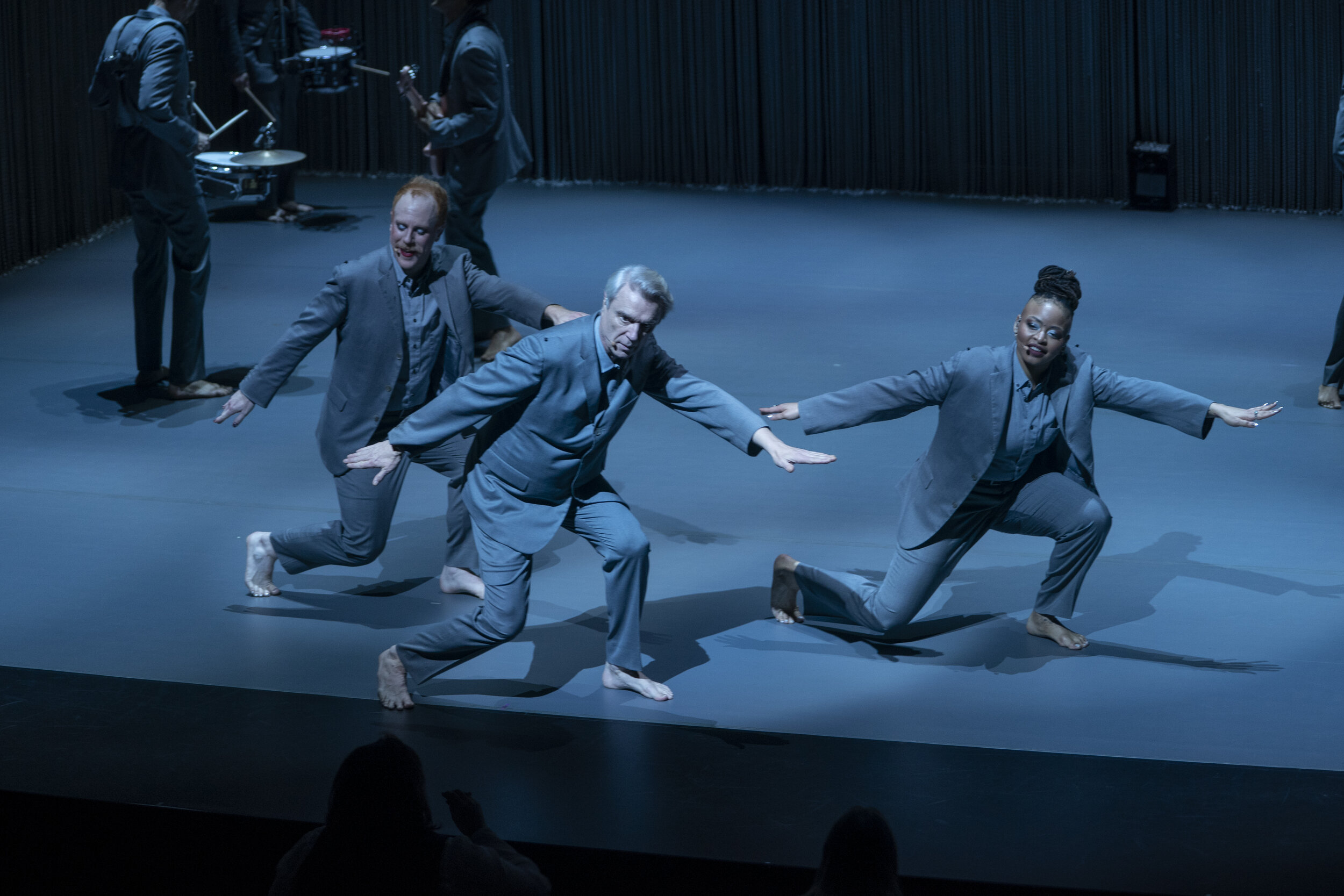
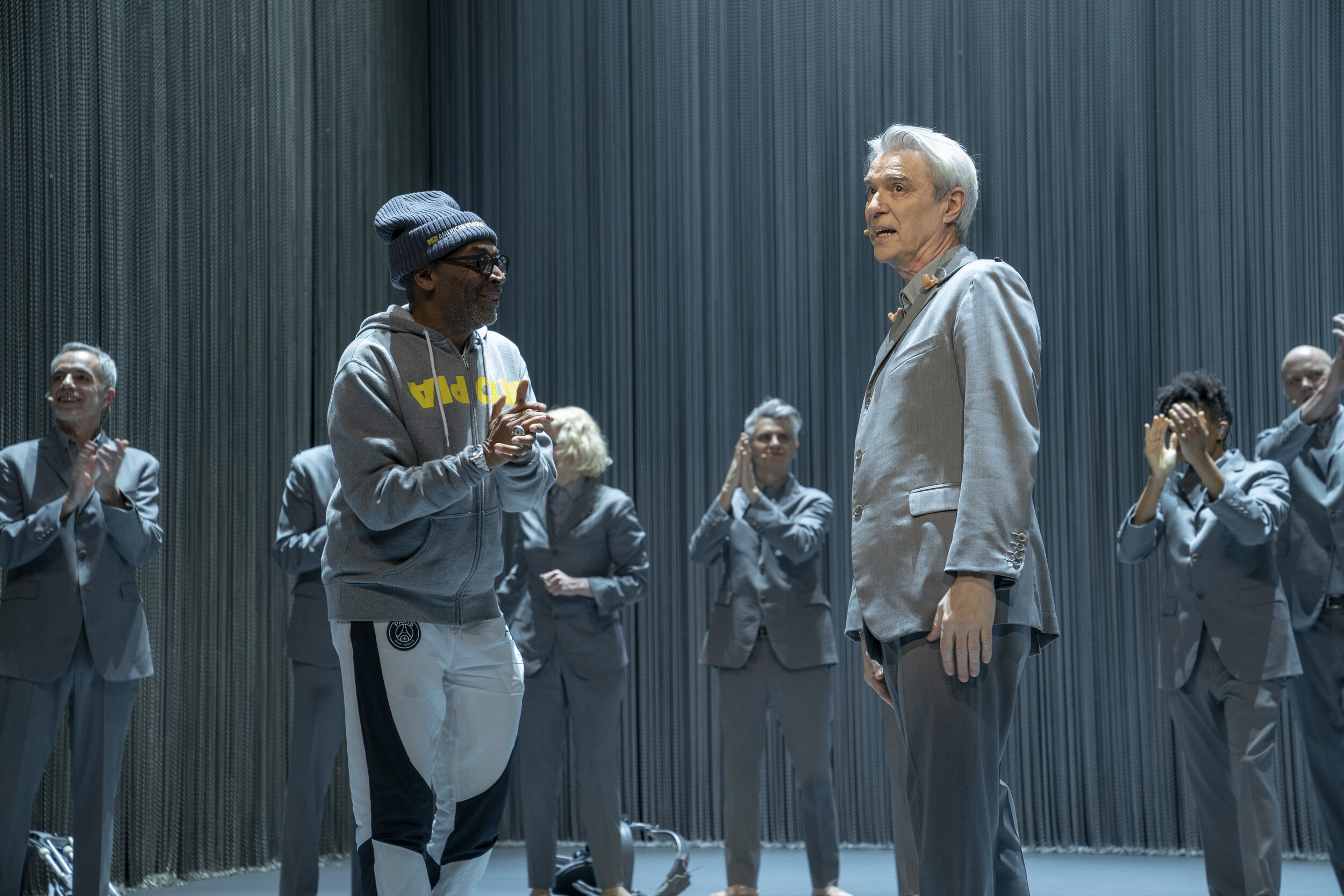
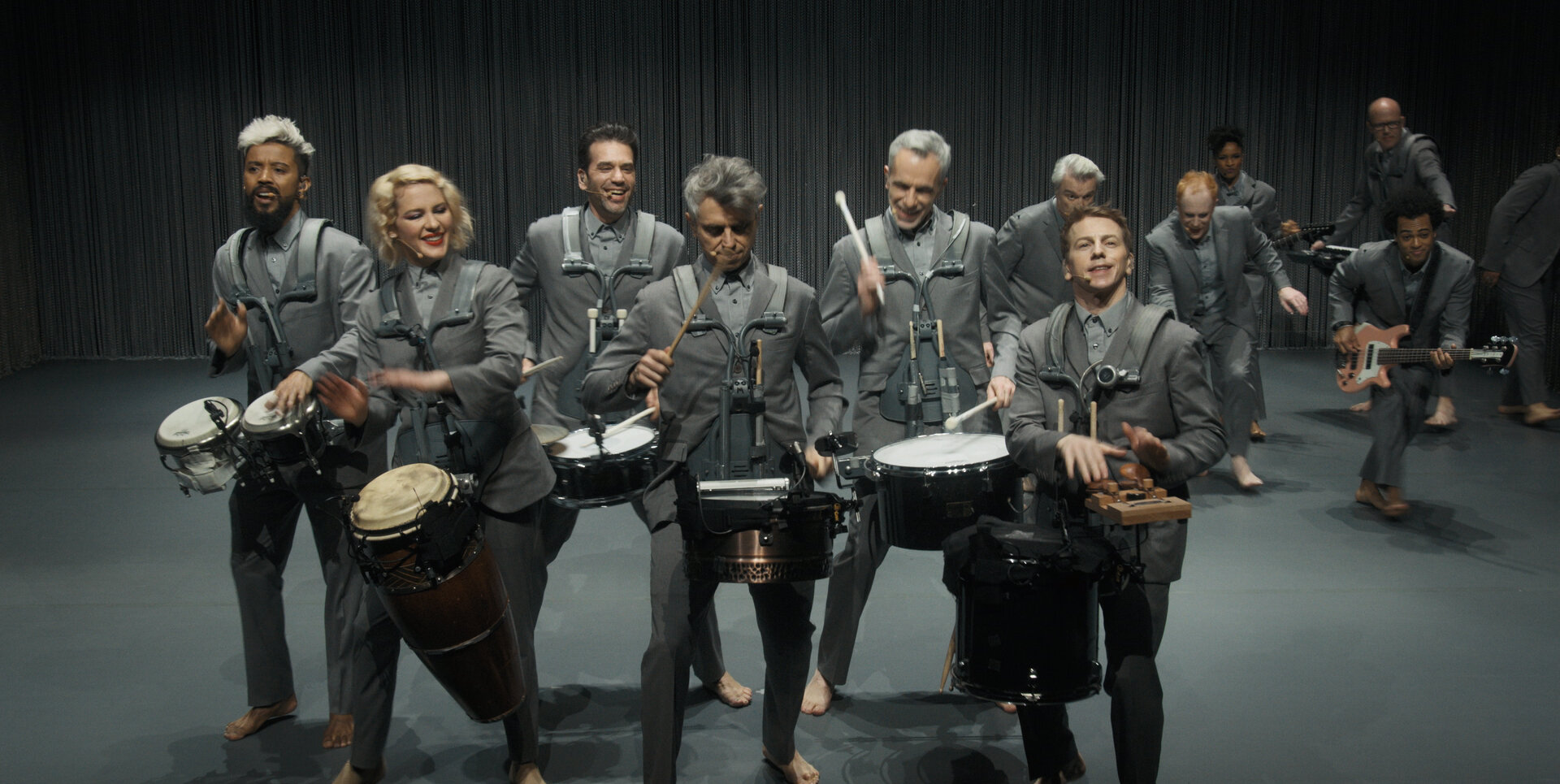
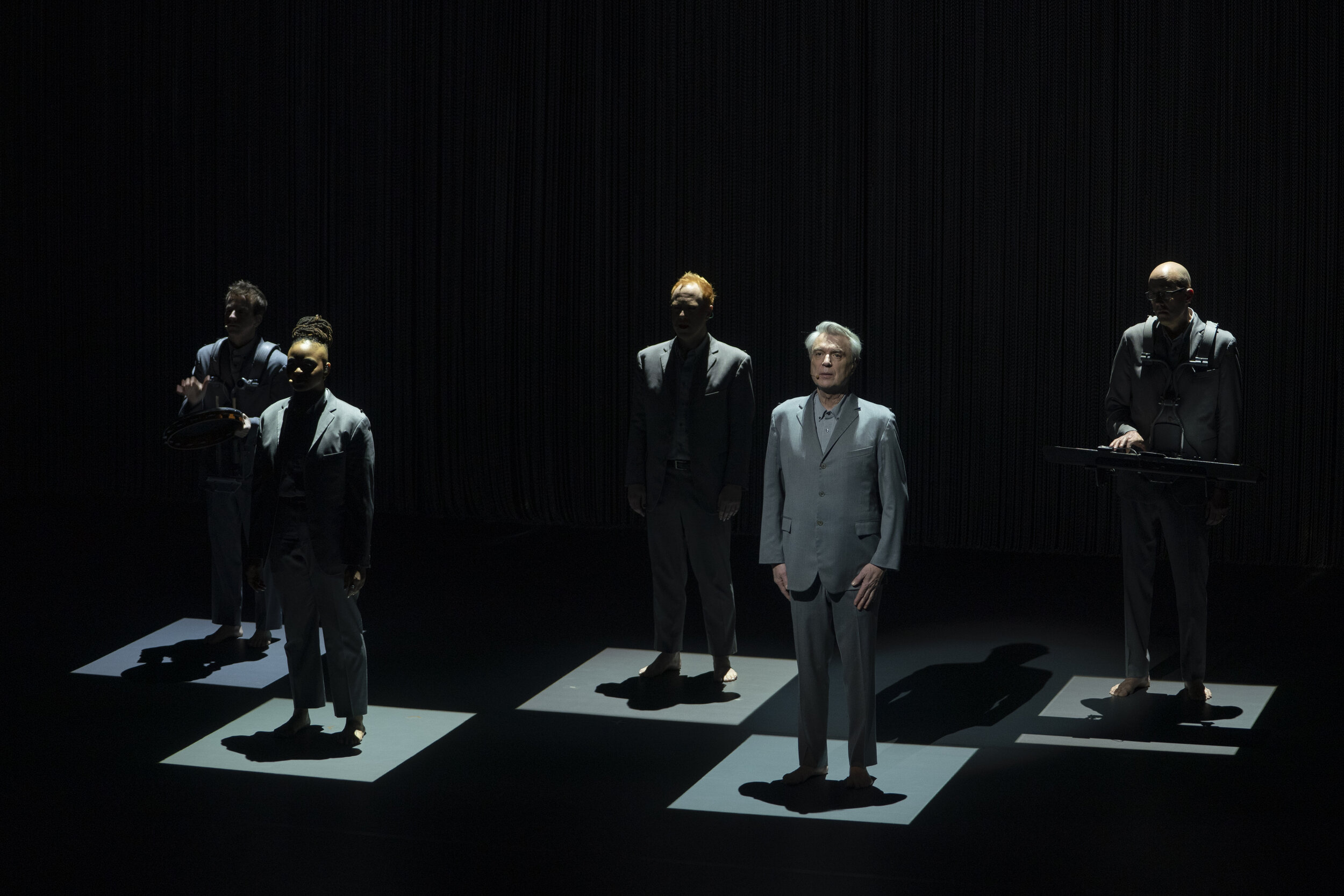






ABOUT
‘Do we get stupider as we grow up?’ In his wildly popular Broadway show American Utopia, David Byrne reflects on human connections, life and how on earth we work through it. He joins the dots with his music and it all starts making sense. Spike Lee here transforms the production into immersive, dynamic cinema that radiates with astounding performances, inventive contemporary dance and political urgency. American Utopia flows like an iridescent dream vision. Work by James Baldwin, Janelle Monáe and Kurt Schwitters is highlighted among exhilarating renditions of Byrne’s solo work, as well as Talking Heads classics. According to the multi-hyphenate, we love looking at humans more than anything else. Anti-fascist and anti-racist, Byrne illuminates our responsibility to care for one another as he and his co-performers burn down the house.
Synopsis
‘Do we get stupider as we grow up?’ In his wildly popular Broadway show American Utopia, David Byrne reflects on human connections, life and how on earth we work through it. He joins the dots with his music and it all starts making sense. Spike Lee here transforms the production into immersive, dynamic cinema that radiates with astounding performances, inventive contemporary dance and political urgency. American Utopia flows like an iridescent dream vision. Work by James Baldwin, Janelle Monáe and Kurt Schwitters is highlighted among exhilarating renditions of Byrne’s solo work, as well as Talking Heads classics. According to the multi-hyphenate, we love looking at humans more than anything else. Anti-fascist and anti-racist, Byrne illuminates our responsibility to care for one another as he and his co-performers burn down the house.
FILMMAKER
Spike Lee was born Shelton Jackson Lee on March 20, 1957, in Atlanta, Georgia. At a very young age, he moved from pre-civil rights Georgia, to Brooklyn, New York. Lee came from artistic, education-grounded background; his father was a jazz musician, and his mother, a schoolteacher. He attended school in Morehouse College in Atlanta and developed his film making skills at Clark Atlanta University. After graduating from Morehouse, Lee attended the Tisch School of Arts graduate film program. He made a controversial short, The Answer (1980), a reworking of D.W. Griffith's Birth of a Nation (1915), a ten-minute film. Lee went on to produce a 45-minute film Joe's Bed-Stuy Barbershop: We Cut Heads (1983) which won a student Academy Award. In 1986, Spike Lee made the film, Lola Darling (1986), a comedy about sexual relationships. The movie was made for $175,000, and earned $7 million at the box office, which launched his career and allowed him to found his own production company, 40 Acres and a Mule Filmworks. His next movie was School Daze (1988), which was set at a historically black school, focused mostly on the conflict between the school and the Fraternities, of which he was a strong critic, portraying them as materialistic, irresponsible, and uncaring. With his School Daze (1988) profits, Lee went on to make his landmark film, Do the Right Thing (1989), a movie based specifically his own neighborhood in Brooklyn, New York. The movie portrayed the racial tensions that emerge in the Bed-Stuy neighborhood on one very hot day. The movie garnered Oscar nominations for Best Original Screenplay, for Danny Aiello for supporting actor, and sparked a debate on racial relations. Lee went on to produce and direct the jazz biopic Mo' Better Blues (1990), the first of many Spike Lee films to feature Denzel Washington, including the biography of Malcolm X (1992), in which Washington portrayed the civil rights leader. The movie was a success, and garnered an Oscar nomination for Washington. The pair would work together again on He Got Game (1998), an excursion into the collegiate world showing the darker side of college athletic recruiting, as well as the 2006 film Inside Man (2006). Spike Lee's role as a documentarian has expanded over the years, highlighted by his participation in Lumière and Company (1995), the Oscar-nominated 4 Little Girls (1997), to his Peabody Award-winning biographical adaptation of Black Panther leader in A Huey P. Newton Story (2001), through his 2005 Emmy Award-winning examination of post-Katrina New Orleans in When the Levees Broke: A Requiem in Four Acts (2006) and its follow-up five years later If God Is Willing and da Creek Don't Rise (2010). Through his production company 40 Acres and A Mule Filmworks, Lee continues to create and direct both independent films and projects for major studios, as well as working on story development, creating an internship program for aspiring filmmakers, releasing music, and community outreach and support. He is married to Tonya Lewis Lee, and they have two sons, Satchel and Jackson.
Spike Lee
Spike Lee was born Shelton Jackson Lee on March 20, 1957, in Atlanta, Georgia. At a very young age, he moved from pre-civil rights Georgia, to Brooklyn, New York. Lee came from artistic, education-grounded background; his father was a jazz musician, and his mother, a schoolteacher. He attended school in Morehouse College in Atlanta and developed his film making skills at Clark Atlanta University. After graduating from Morehouse, Lee attended the Tisch School of Arts graduate film program. He made a controversial short, The Answer (1980), a reworking of D.W. Griffith's Birth of a Nation (1915), a ten-minute film. Lee went on to produce a 45-minute film Joe's Bed-Stuy Barbershop: We Cut Heads (1983) which won a student Academy Award. In 1986, Spike Lee made the film, Lola Darling (1986), a comedy about sexual relationships. The movie was made for $175,000, and earned $7 million at the box office, which launched his career and allowed him to found his own production company, 40 Acres and a Mule Filmworks. His next movie was School Daze (1988), which was set at a historically black school, focused mostly on the conflict between the school and the Fraternities, of which he was a strong critic, portraying them as materialistic, irresponsible, and uncaring. With his School Daze (1988) profits, Lee went on to make his landmark film, Do the Right Thing (1989), a movie based specifically his own neighborhood in Brooklyn, New York. The movie portrayed the racial tensions that emerge in the Bed-Stuy neighborhood on one very hot day. The movie garnered Oscar nominations for Best Original Screenplay, for Danny Aiello for supporting actor, and sparked a debate on racial relations. Lee went on to produce and direct the jazz biopic Mo' Better Blues (1990), the first of many Spike Lee films to feature Denzel Washington, including the biography of Malcolm X (1992), in which Washington portrayed the civil rights leader. The movie was a success, and garnered an Oscar nomination for Washington. The pair would work together again on He Got Game (1998), an excursion into the collegiate world showing the darker side of college athletic recruiting, as well as the 2006 film Inside Man (2006). Spike Lee's role as a documentarian has expanded over the years, highlighted by his participation in Lumière and Company (1995), the Oscar-nominated 4 Little Girls (1997), to his Peabody Award-winning biographical adaptation of Black Panther leader in A Huey P. Newton Story (2001), through his 2005 Emmy Award-winning examination of post-Katrina New Orleans in When the Levees Broke: A Requiem in Four Acts (2006) and its follow-up five years later If God Is Willing and da Creek Don't Rise (2010). Through his production company 40 Acres and A Mule Filmworks, Lee continues to create and direct both independent films and projects for major studios, as well as working on story development, creating an internship program for aspiring filmmakers, releasing music, and community outreach and support. He is married to Tonya Lewis Lee, and they have two sons, Satchel and Jackson.
Reviews
"A flat-out masterpiece" - Rolling Stones
"An outstanding collaboration between two essential artists" - Vanity Fair
"Simply spectacular... a masterclass in musicianship" - The Hollywood Reporter
"Should be required viewing for everyone... magical" - Uproxx
"One of the best movies of its kind... Grade: A" - Indiewire


